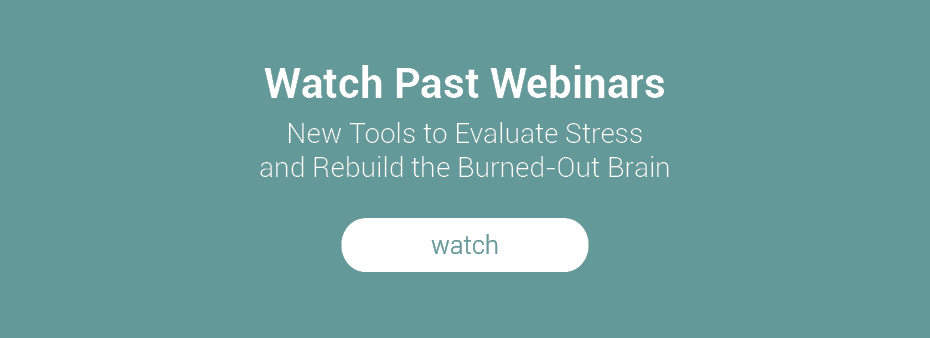In functional medicine, we focus on finding the root cause of health issues to help our patients achieve lasting recovery and relief from their symptoms. In cases of chronic stress, it is important to dig deeper into what stressors may be affecting the body; here are four key stressors to consider when assessing chronic stress patients:
Mental and Emotional Stress
Our jobs, relationships and financial worries are the primary drivers of mental and emotional stress responses. It is what most people think of when they hear the word stress.
Glycemic Dysregulation
Skipping meals and high-carbohydrate diets can lead to subsequent drops in glucose levels, which are powerful triggers for the HPA axis to respond with cortisol in an attempt to recover acceptable glucose levels.
Inflammation
Cortisol is the extinguishing hormone to throw on any “fire” in the body. This is often intestinal inflammation from the diet or microbes found in the GI tract, mouth or nasal passages.
Poor Sleep
Insufficient time spent in bed, excess blue light prior to going to bedtime, late-night eating and sleep apnea all interfere with quality and number of sleep cycles and can lead to substantial reduction in recovery, putting
greater stress on the HPA axis.
It is imperative to identify the stresses most impacting the patient and reduce its effects on physiology. Identifying which stressor(s) have the most impact on your patients’ health is the first step in reducing the significant physiological effects. At that point, you may consider nutritional support to further assist your patients in long-term stress recovery.
Targeted Nutrients for Neurotransmitter Support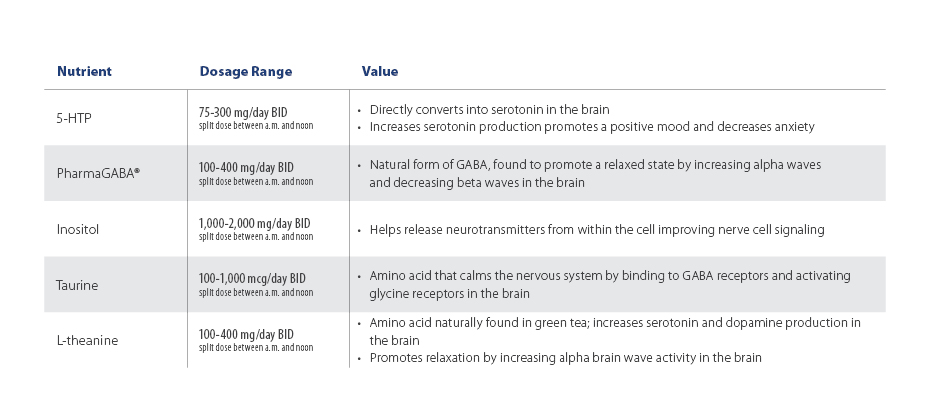
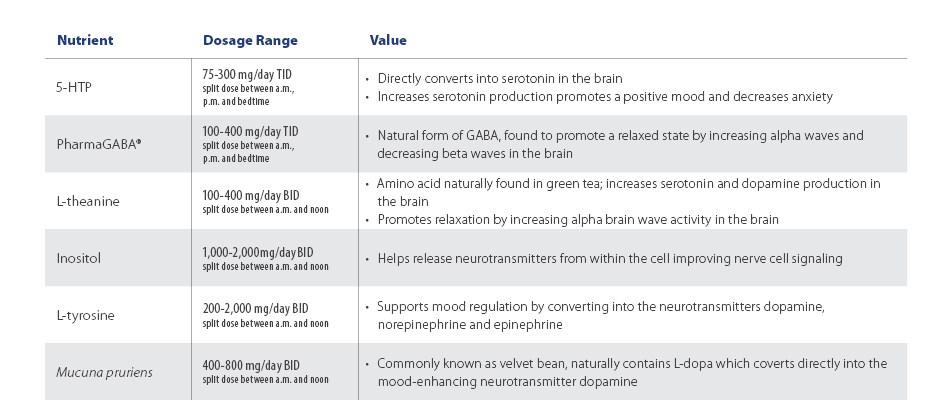
Targeted Nutrients for HPA Axis Support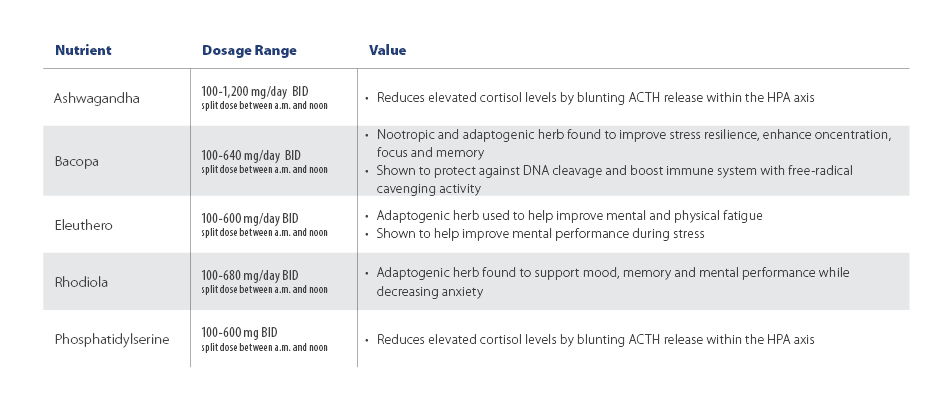
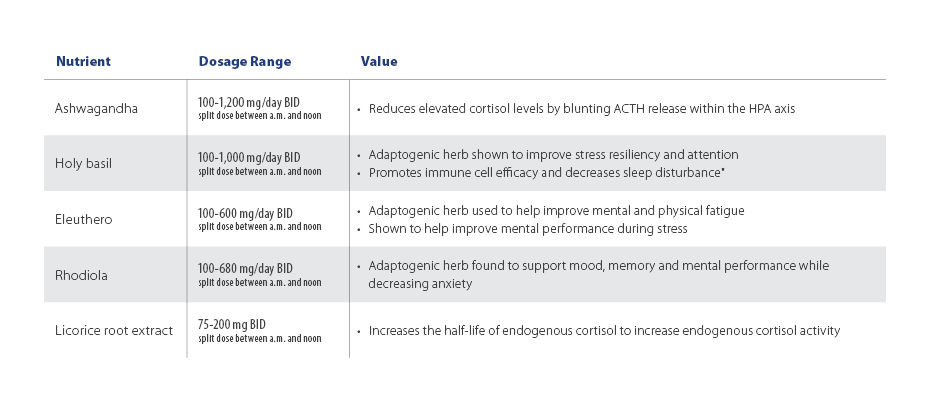

Christopher Mote, DO, DC, IFMCP
Christopher Mote, DO, DC, IFMCP earned his doctorate in osteopathy from the Chicago College of Osteopathic Medicine at Midwestern University. He earned his doctorate in chiropractic and Bachelor of Science in human biology from the National University of Health Sciences (NUHS) in Lombard, Illinois, and is certified in Functional Diagnostic Medicine.
Dr. Mote also serves as the ARK Stress Recovery Program Clinical Expert at the Lifestyle Matrix Resource Center. With a focus on addressing the root cause of health concerns, Dr. Mote specializes in the diagnosis and treatment of chronic health disorders.


